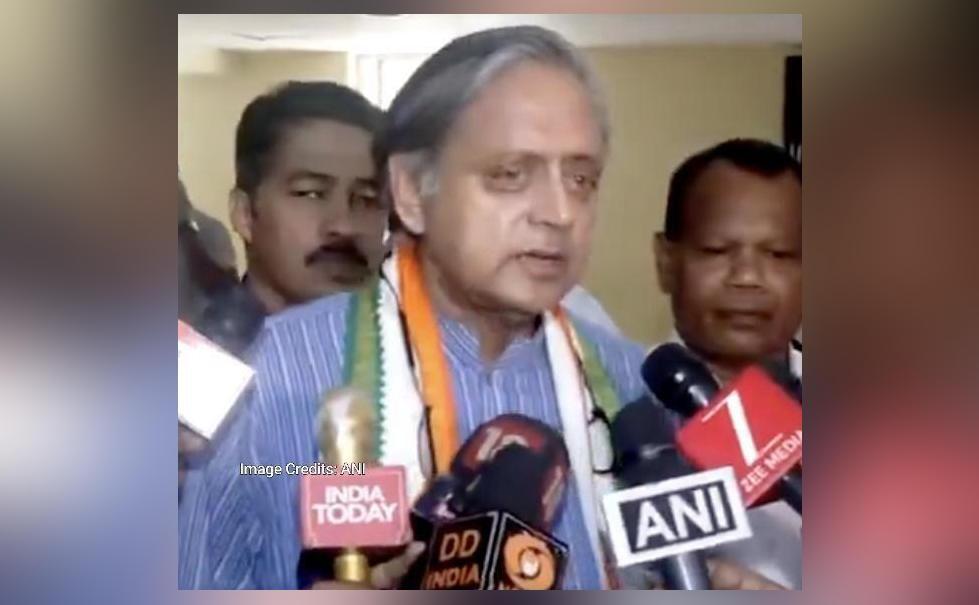
Iran & Israel have been our friends, all we can do is observe: Tharoor
The ongoing conflict between Iran and Israel has left the world in a state of unease, with both sides exchanging blows and neither willing to back down. Amidst this chaos, India’s Congress leader Shashi Tharoor has weighed in on the situation, stating that both countries have been friends of India. However, he also emphasized that there is little India can do to influence the situation, except to “observe with attention and concern”.
In an interview, Tharoor acknowledged that the conflict has taken a toll on both sides, with over 650 people having lost their lives so far. This staggering number serves as a grim reminder of the devastating impact of war on innocent civilians.
Tharoor’s remarks are a stark reflection of India’s diplomatic stance on the conflict, which has till now remained neutral. India’s foreign policy has historically been guided by the principle of non-alignment, with the country maintaining good relations with both Iran and Israel. This approach has allowed India to maintain its independence in international affairs, while also fostering strong diplomatic ties with various nations.
The Congress leader’s statement also highlights the delicate balancing act that India has to perform in its relations with Iran and Israel. On one hand, India has a significant trade relationship with Iran, with the country being one of the largest importers of Iranian oil. On the other hand, India has a strong strategic partnership with Israel, with the two countries cooperating in areas such as defense and technology.
Tharoor’s words of caution also serve as a reminder of the complexities of the Middle East. The conflict between Iran and Israel is deeply rooted in a web of historical, political, and religious tensions that will require careful diplomacy and negotiation to resolve. As India watches the situation unfold, it is clear that the country’s role will be limited to providing humanitarian aid and diplomatic support, rather than actively intervening in the conflict.
The conflict between Iran and Israel has its roots in the 1979 Islamic Revolution in Iran, which saw the country transition from a secular monarchy to an Islamic republic. This shift in Iran’s political landscape led to a deterioration in relations with the West, including Israel, with whom Iran had previously maintained good ties. Over the years, the animosity between the two nations has only intensified, with both sides engaging in proxy wars and sabotage in the region.
Israel, on the other hand, has been a long-standing ally of the United States, with the two countries sharing a strong strategic partnership. This partnership has been driven by shared interests in the region, including the containment of Iran’s nuclear ambitions and the promotion of regional stability.
In recent years, the conflict between Iran and Israel has escalated significantly, with the two sides exchanging missile strikes and engaging in covert operations. The situation has been further complicated by the involvement of other regional players, including the United States, Russia, and Turkey, each with their own interests and agendas.
As the conflict continues to rage on, it is clear that a peaceful resolution will require a sustained diplomatic effort from all parties involved. India’s role, as Tharoor emphasized, will be limited to observing the situation with “attention and concern”, providing humanitarian aid and support as needed, and maintaining its diplomatic relations with both Iran and Israel.
In conclusion, the conflict between Iran and Israel is a complex and deeply ingrained issue that will require careful diplomacy and negotiation to resolve. As India watches the situation unfold, it is clear that the country’s role will be limited to providing humanitarian aid and diplomatic support, rather than actively intervening in the conflict. By maintaining its neutrality and focusing on its core interests, India can continue to play a constructive role in promoting regional stability and peace.



